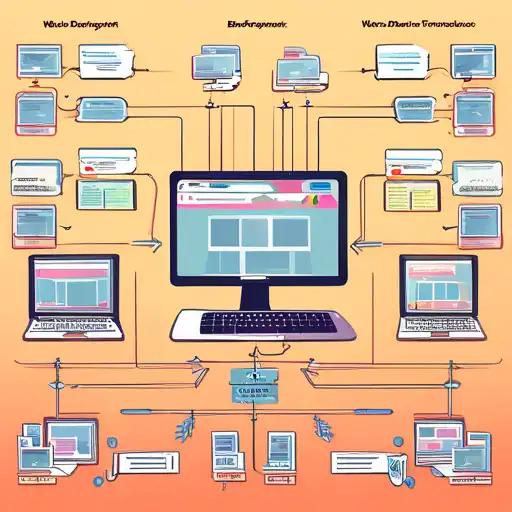Understanding Web Development Frameworks
In the ever-evolving world of web development, choosing the right framework is crucial for building efficient, scalable, and maintainable websites and applications. With a plethora of options available, developers often find themselves at a crossroads, trying to decide which framework best suits their project needs.
What Are Web Development Frameworks?
Web development frameworks are software libraries designed to support the development of web applications by providing a standard way to build and deploy them. They offer a foundation upon which developers can build, saving time and effort by eliminating the need to write code from scratch.
Key Factors to Consider When Choosing a Framework
Selecting the right framework involves considering several factors that can impact the success of your project. Here are some key considerations:
- Project Requirements: The nature and requirements of your project play a pivotal role in determining the most suitable framework.
- Learning Curve: Some frameworks are more beginner-friendly than others. Consider the skill level of your team.
- Community and Support: A strong community and good documentation can be invaluable resources for troubleshooting and learning.
- Performance: Evaluate the performance benchmarks of the framework to ensure it meets your project's needs.
Popular Web Development Frameworks
Here's a look at some of the most popular web development frameworks today:
- React.js: A JavaScript library for building user interfaces, known for its flexibility and efficiency.
- Angular: A platform and framework for building single-page client applications using HTML and TypeScript.
- Vue.js: An approachable, versatile, and performant JavaScript framework for building UI and single-page applications.
- Django: A high-level Python web framework that encourages rapid development and clean, pragmatic design.
Making the Right Choice
Choosing the right web development framework is not a one-size-fits-all decision. It requires a careful evaluation of your project's specific needs, your team's expertise, and the long-term maintenance of the application. By considering the factors mentioned above and exploring the features of each framework, you can make an informed decision that aligns with your project goals.
For more insights into web development and choosing the right tools for your project, explore our technology section for a wealth of resources and guides.
